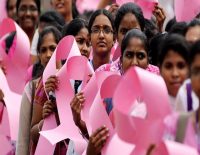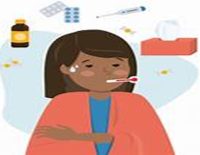Mandaviya addresses 76th session of WHO Regional Committee for South-East Asia

The Union Minister of Health and Family Welfare, Dr. Mansukh Mandaviya addressed the 76th session of the World Health Organization Regional Committee for South-East Asia, here today. He was joined by Dr. Tedros Adhanom Ghebreyesus, Director-General, World Health Organization (WHO) who was present virtually. Dr. Mandaviya was also unanimously elected as Chairperson of the 76th session of the regional committee of South-East Asia.
Reiterating the vision of the Prime Minister Shri Narendra Modi, the Union Health Minister stated “health is the ultimate wealth and with good heath, every task can be accomplished.” He emphasized “In India we are following a holistic and inclusive approach. We are expanding health infrastructure, promoting traditional systems of medicine and providing affordable healthcare to all in alignment with the vison of Universal Health Coverage with the resolute commitment of leaving no one behind.”
Addressing the gathering, Dr. Mandaviya lauded the progress of Ayushman Bharat Health and Wellness Centres (AB-HWC) which have played an instrumental role in providing a comprehensive array of primary healthcare services. He cited “As of October 24, 2023, AB-HWCs have recorded over 2,110 million footfalls. The impact is resounding with individuals availing free drugs over 1,830 million times and diagnostic services over 873 million times”. He further added “26 million wellness sessions have been conducted engaging more than 306 million people.”
Dr. Mandaviya noted that initiatives such as Ayushman Bharat Digital Mission and PM-ABHIM have substantially strengthened the digital health framework and physical infrastructure, catalyzing a revolutionary evolution ofthe health care delivery in the nation. The Union Health Minister highlighted that “our current focus on primary health centres through AB-HWC emulating a synergistic approach will result in immeasurably positive health outcomes and reductions in out-of-pocket expenditures and become a model for other countries engaged in health sector reforms.”








Comments